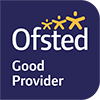Modern Foreign Languages
Curriculum Leader:
Ms F Barringer
Subject Teachers:
- Ms S Shellard
- Ms G Castro
- Ms S Montgomery
GCSE Exam Board: AQA
Subject Specification Number:
- French 8658
- German 8668
- Spanish 8698
If you talk to a man in a language he understands, it goes to his head, if you talk to a man in his own language, it goes to his heart
- Nelson Mandela
Curriculum Intent
At Cove school, our aim is to inspire a love of languages and an appreciation for different cultures and being globally aware.
We create a learning environment in the classroom that motivates and encourages students to communicate, as far as possible, in the target language. Real communication is the central thread to our lessons, together with an understanding of phonics and accurate pronunciation. The teaching of grammar is also considered vital to develop genuine independence and for students to be able to express themselves.
We employ different teaching methods that actively engage our students in meaningful and experiential learning through careful questioning, peer-and-self-assessment and interactive methods of teaching and learning.
We employ a wide range of resources, including the use of ICT and authentic materials. Enrichment activities are offered, whenever possible, including extra-curricular trips abroad and clubs.
Curriculum Implementation
Students are assessed across all four skill areas in KS3: listening, speaking, reading and writing, including translation into and from the target language. Within each skill area grammar knowledge is also assessed, with the aim to identify and use three time frames.
In preparation for the new GCSE specification, which will be taught from September 2024, we also expose our learners to dictation and read aloud activities. We use Sentence builders to scaffold and support students, whilst providing opportunity for challenge in all of our activities. We use Language gym, Sentencebuilders.com, Seneca and Memrise in lessons and at home to provide opportunities for students to practise vocabulary and structures independently.
MFL Curriculum Course Outline and Structure
Key Stage 3 for French, German and Spanish
Assessment Method - Each topic is design to cover the following strands or Assessment Objectives.
Listening – AO1
- listen to a variety of forms of spoken language to obtain information and respond appropriately
- transcribe words and short sentences that they hear with increasing accuracy
Speaking – AO2
- initiate and develop conversations, coping with unfamiliar language and unexpected responses, making use of important social conventions such as formal modes of address
- express and develop ideas clearly and with increasing accuracy.
- speak coherently and confidently, with increasingly accurate pronunciation and intonation
Reading – A03
- read and show comprehension of original and adapted materials from a range of different sources, understanding the purpose, important ideas and details, and provide an accurate English translation of short, suitable material
- read literary texts in the language, such as stories, songs, poems and letters, to stimulate ideas, develop creative expression and expand understanding of the language and culture
Writing – A04
- write prose using an increasingly wide range of grammar and vocabulary, write creatively to express their own ideas and opinions, and translate short written text accurately into the foreign language
Grammar – A05
- identify and use tenses or other structures which convey the present, past, and future as appropriate to the language being studied
- use and manipulate a variety of key grammatical structures and patterns, including voices and moods, as appropriate
- develop and use a wide-ranging and deepening vocabulary that goes beyond their immediate needs and interests, allowing them to give and justify opinions and take part in discussion about wider issues
- use accurate grammar, spelling and punctuation
Course Outline and Structure - Key Stage 4
Exam Board: AQA
GCSE French/German/Spanish
We strongly advise students to consider studying a Modern Foreign Language at GCSE. Not only can learning another language help to improve our understanding of English but can also be a valuable asset when seeking employment. Knowing another language can enhance our travel experiences abroad and strengthen our position as world citizens.
Course content at KS4:
Theme 1: Identity and culture
Topic 1: Me, my family and friends
- Relationships with family and friends
- Marriage / partnership
Topic 2: Technology in everyday life
- Social media
- Mobile technology
Topic 3: Free-time activities
- Music
- Cinema and TV
- Food and eating out
- Sport
Topic 4: Customs and festivals in French/German/Spanish-speaking countries/communities
Theme 2: Local, national, international and global areas of interest
Topic 1: Home, town, neighbourhood and region
Topic 2: Social issues
- Charity/volunteer work
- Healthy/unhealthy living
Topic 3: Global issues
- The environment
- Poverty/homelessness
Topic 4: Travel and tourism
Theme 3: Current and future study and employment
Topic 1: My studies
Topic 2: Life at school/college
Topic 3: Education post-16
Topic 4: Jobs, career choices and ambitions
Assessment Structure:
|
PAPER 1 |
PAPER 2 |
PAPER 3 |
PAPER 4 |
|---|---|---|---|
|
Listening |
Reading |
Speaking |
Writing |
|
Final Exam 25% |
Final Exam 25% |
Final Exam 25% |
Final Exam 25% |
Additional information:
Our aim is to help our language students achieve their full potential and ultimately their target grades. We organise visits abroad, which offer opportunities to practise language skills in a real life setting and to experience the culture of the country first hand. In previous years the department’s trips France and Germany have proved to be great successes and these will continue in the future.
Key Website to Support Learning / Useful Resources:

